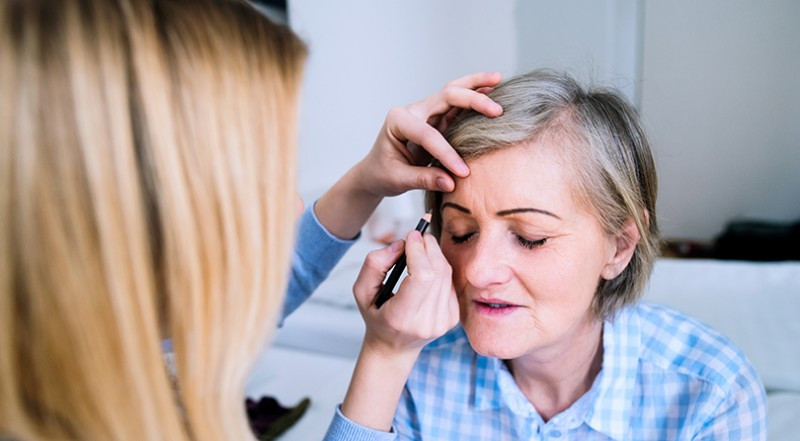The aging process comes with both positives and negatives. All things considered, one of the most prominent drawbacks of aging are the physical effects, and skin changes are one of the most noticeable.
Wrinkles are a common sign of aging. Other common skin changes include thinning and sagging of the skin, aging spots, dryness, and slower healing from cuts and bruises. Per the
National Institute of Aging (NIA), the skin changes that occur are to aging itself as well as the result of environmental factors; For this reason, we have included some lifestyle tips in this article to help you avoid negative skin changes over time.
Additionally, we discuss some vitamins and nutrients that have the potential to be excellent aides in warding off aging effects on skin. Per
webmd.com, certain nutrients (such as zinc) can be helpful because these nutrients play a crucial role in the make-up and function of skin. Supplementation can be particularly helpful if you might not be getting enough of these nutrients in your diet
Why Does Skin Change With Age?
Per the
NIA, wrinkling is natural, but it is increased due to exposure to sunlight, as are aging spots. Dry skin can be caused by prolonged stress, smoking, and less-than-ideal hydration habits. Genetic factors such as one's ethnicity, as well as other genetic factors, can affect the aging process of skin, per
healthline.com. No matter the cause of these changes, proper lifestyle habits and supplements can help to prolong healthy, youthful-looking skin.
Diet & Lifestyle Tips for Good Skin
Limit exposure to sunlight. Per
National Institutes of Health, chronic exposure to UV radiation, most often in the form of sunlight, results in a compounding of the natural aging process on skin. Areas commonly exposed, such as the face and arms, are particularly vulnerable. The common effects include a leathering of the skin and uneven pigmentation. Wearing protective clothing and sunscreen are excellent ways to prevent these effects, per the
NIA.
Limit intake of sugary foods. Sugar and refined carbohydrates are extremely common in the American diet. Per
thequench.com, dermatologist Jessica Wu explains that consumption of sugary and refined carbohydrate-heavy foods can help to eliminate various negative skin effects including wrinkles and acne (which can occur in adulthood).
Avoid smoking if you want to retain good-looking skin. Numerous sources cite smoking as a catalyst for wrinkling of the skin and other detrimental effects. Per
nomige.com, the primary detriment to skin from smoking is its negative effect on the transport of molecules such as oxygen through blood vessels.
Supplements to Boost Skin Health
Collagen is an essential protein that contributes to the structure of your skin, or the epidermis in medical terminology, per
fullscript.com. Your epidermis would not exist without it. Collagen production tends to decline slowly with age, and this contributes to overall skin aging. Taking a collagen supplement is an easy and feasible way to immediately boost the youthfulness of your skin over time.
Vitamin C is highly valuable to your skin for two different reasons. Per
webmd.com, vitamin C helps the proteins that make up epidermal tissue, such as collagen, to retain their structure. Additionally, vitamin C helps to work against free radicals, which can lead to acne breakouts.
Whey protein and amino acids can be fundamental boosters to skin health over time, because of the essential nature of proteins to skin health, per
webmd.com. Proteins present in epidermal tissue such as collagen and keratin, as well as all other proteins, are made up of substances known as amino acids. Their particular role is in the structure of epidermal tissue, which is made up of multiple layers.
Zinc is a mineral that is particularly important to the outermost layer of epidermal tissue, per
webmd.com. While present in multiple layers of skin, it is highly concentrated in the outer layer; For this reason, getting enough zinc might help boost the healing process for light bruises and surface-level cuts, which typically take longer to heal with age.
Omega-3 fatty acids play many important roles, and preserving healthy skin is one of them. Per
fullscript.com, they are worthwhile for skin health because of their antioxidant properties. They might help to reduce skin dryness, inflammation, and acne. Lastly, they might also be effective in preventing damage due to exposure to UVA and UVB light rays.

